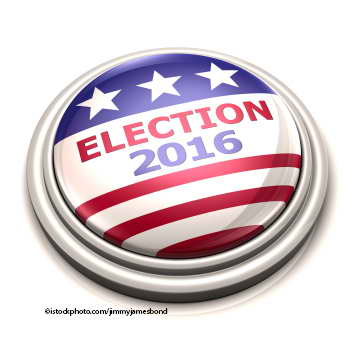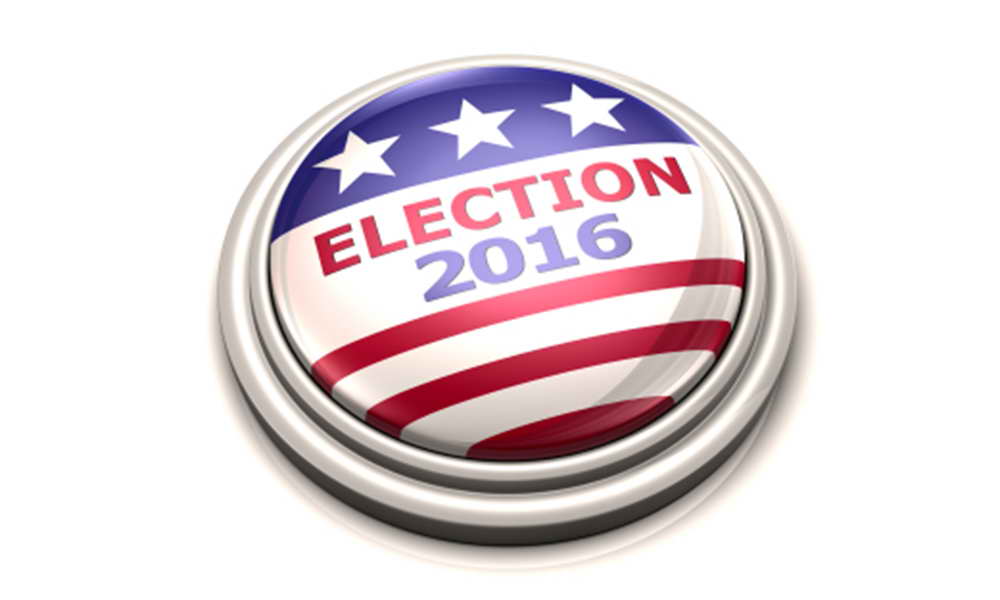December 11, 2013
12/11: Clinton & Christie Close in Hypothetical 2016 Matchup
McClatchy/Marist National Poll
If the 2016 presidential election were held today, Hillary Clinton would be the front-runner against a host of potential Republican challengers by double digits. However, there is one exception. She and Chris Christie would be locked in a close contest, separated by just three percentage points.
 Click Here for Complete December 11, 2013 USA McClatchy-Marist Poll Release and Tables
Click Here for Complete December 11, 2013 USA McClatchy-Marist Poll Release and Tables
POLL MUST BE SOURCED: McClatchy-Marist Poll
“Democrats divide about whether they want a nominee who will continue the policies of President Obama or move in a different direction although strong Democrats still want a nominee who will follow in Obama’s footsteps,” says Dr. Lee M. Miringoff, Director of The Marist College Institute for Public Opinion. “Most Republicans still want a nominee who will stand on conservative principles rather than one who may appeal to more moderate voters.”
Among registered voters nationally, here is how Hillary Clinton fares against potential Republican candidates:
- Clinton receives 48% to 45% for Chris Christie. Seven percent are undecided. In July, Clinton was ahead of Christie by six percentage points, 47% to 41%. 12% were undecided.
- When matched against Marco Rubio, 52% back Clinton compared with 42% for Rubio. Five percent are undecided. In the summer, half of voters — 50% — were for Clinton compared with 38% for Rubio. 12% were undecided.
- Clinton also has majority support — 53% — when she faces Jeb Bush — 41%. Six percent are undecided. When McClatchy-Marist last reported this question, 48% were for Clinton compared with 40% for Bush. 12%, at that time, were undecided.
- Against Rand Paul, Clinton has 55% to 40% for Paul. Five percent are undecided. In McClatchy-Marist’s July survey, 50% were for Clinton compared with 38% for Paul. 11% were undecided.
- Against Paul Ryan, Clinton leads by 16 percentage points. 56% of voters support Clinton compared with 40% for Ryan. Four percent are undecided. Five months ago, 53% were for Clinton compared with 37% for Ryan. Nine percent, then, were undecided.
- Clinton — 58% — outpaces Rick Perry — 37% — by more than 20 percentage points. Five percent are undecided. In July, 52% were for Clinton compared with 36% for Perry. 12% were undecided.
- When Clinton faces off against Ted Cruz, she garners 57% of the vote to 35% for Cruz. Seven percent are undecided.
- Clinton — 59% — outdistances Palin — 36% — by 23 percentage points. Four percent are undecided.
Table: Potential 2016 Presidential Contest: Clinton/Christie
Table: Potential 2016 Presidential Contest: Clinton/Rubio
Table: Potential 2016 Presidential Contest: Clinton/Bush
Table: Potential 2016 Presidential Contest: Clinton/Paul
Table: Potential 2016 Presidential Contest: Clinton/Ryan
Table: Potential 2016 Presidential Contest: Clinton/Perry
Table: Potential 2016 Presidential Contest: Clinton/Cruz
Table: Potential 2016 Presidential Contest: Clinton/Palin
Clinton Clear Democratic Front-runner…Christie Edges Competitors in Crowded GOP Field
What are the chances that Clinton would receive her party’s nomination? If she were to declare her candidacy and the primary were held today, Clinton is a strong favorite outdistancing her closest Democratic opponent, Joe Biden, by more than five to one. However, if Clinton were to sit out 2016, Joe Biden defeats his closest competitor, Elizabeth Warren by double digits.
Among Democrats nationally including Democratic leaning independents, here is how the contest stands:
- 65% Hillary Clinton
- 12% Joe Biden
- 9% Elizabeth Warren
- 3% Andrew Cuomo
- 1% Martin O’Malley
- 9% undecided
When McClatchy-Marist last reported this question in July, 63% of Democrats and Democratic leaning independents supported Clinton. 13% backed Biden, and 6% were for Cuomo. One percent supported O’Malley, and 18%, at that time, were undecided.
How would the contest look if Hillary Clinton decided not to run? Among Democrats nationally including Democratic leaning independents, here is how the contest stands:
- 45% Joe Biden
- 25% Elizabeth Warren
- 11% Andrew Cuomo
- 4% Martin O’Malley
- 15% undecided
When it comes to the future of the Democratic Party, 49% of Democrats and Democratic leaning independents think it’s more important to have a candidate who will continue the policies of President Barack Obama. 46% prefer a nominee who will move in a different direction. Four percent are unsure. However, two-thirds of strong Democrats — 67% — want a nominee who will build upon the Obama presidency compared with only 37% of soft Democrats who share this view. In McClatchy-Marist’s July survey, 46% of Democrats and Democratic leaning independents said it was more important for the nominee to advance the policies of Mr. Obama while 44% wanted a candidate who would shift gears. 10%, at that time, were undecided.
Looking at the bid for the Republican nomination, in this hypothetical contest, Chris Christie is ahead of his closest competitor, Rand Paul, by six percentage points. Others follow closely behind.
Among Republicans nationally including Republican leaning independents, here is how the contest stands:
- 18% Chris Christie
- 12% Rand Paul
- 11% Paul Ryan
- 10% Ted Cruz
- 10% Jeb Bush
- 8% Sarah Palin
- 7% Marco Rubio
- 4% Scott Walker
- 4% Rick Santorum
- 3% Rick Perry
- 13% undecided
When McClatchy-Marist last reported this question in July, 15% of Republicans and Republican leaning independents were for Christie compared with 13% for Paul Ryan. 12% were behind Rubio while Jeb Bush garnered 10%. Nine percent supported Rand Paul while Cruz received the backing of 7%. Perry had 4% while Walker and Santorum each garnered 2%. One percent supported Bobby Jindal, and an additional 1% backed Susana Martinez. One in four — 25% — was undecided.
A Republican nominee who stands on conservative principles is more important than one who can win, according to 67% of Republicans and Republican leading independents. However, more than three in ten — 31% — say the priority should be a candidate who can win the White House. Two percent are unsure. Similar proportions shared these views in July. At that time, 64% thought it was more important for the nominee to reflect GOP principles while 31% preferred a strong candidate who could defeat his or her Democratic opponent. Five percent were unsure.
Table: Potential 2016 Democratic Presidential Primary or Caucus
Table: Potential 2016 Democratic Presidential Primary or Caucus without Hillary Clinton
Table: Priority for Democratic Presidential Nominee: the Same or Different Vision as President Obama
Table: Potential 2016 Republican Presidential Primary or Caucus
Table: Priority for Republican Presidential Nominee: Conservative Principles or Electability

